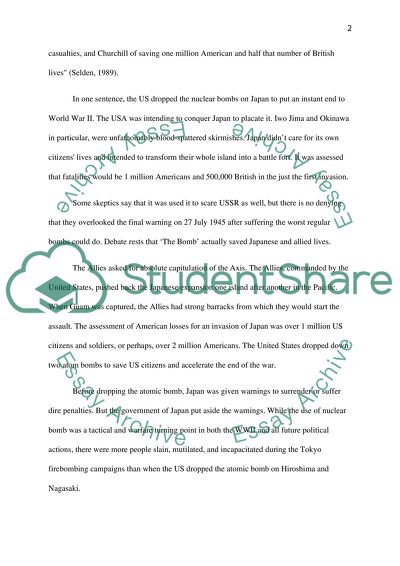Cite this document
(“US Drop the Atomic Bombs on Japan to Put an Immediate End to the War Research Paper”, n.d.)
US Drop the Atomic Bombs on Japan to Put an Immediate End to the War Research Paper. Retrieved from https://studentshare.org/history/1448566-us-drop-the-atomic-bombs-on-japan-to-put-an
US Drop the Atomic Bombs on Japan to Put an Immediate End to the War Research Paper. Retrieved from https://studentshare.org/history/1448566-us-drop-the-atomic-bombs-on-japan-to-put-an
(US Drop the Atomic Bombs on Japan to Put an Immediate End to the War Research Paper)
US Drop the Atomic Bombs on Japan to Put an Immediate End to the War Research Paper. https://studentshare.org/history/1448566-us-drop-the-atomic-bombs-on-japan-to-put-an.
US Drop the Atomic Bombs on Japan to Put an Immediate End to the War Research Paper. https://studentshare.org/history/1448566-us-drop-the-atomic-bombs-on-japan-to-put-an.
“US Drop the Atomic Bombs on Japan to Put an Immediate End to the War Research Paper”, n.d. https://studentshare.org/history/1448566-us-drop-the-atomic-bombs-on-japan-to-put-an.


